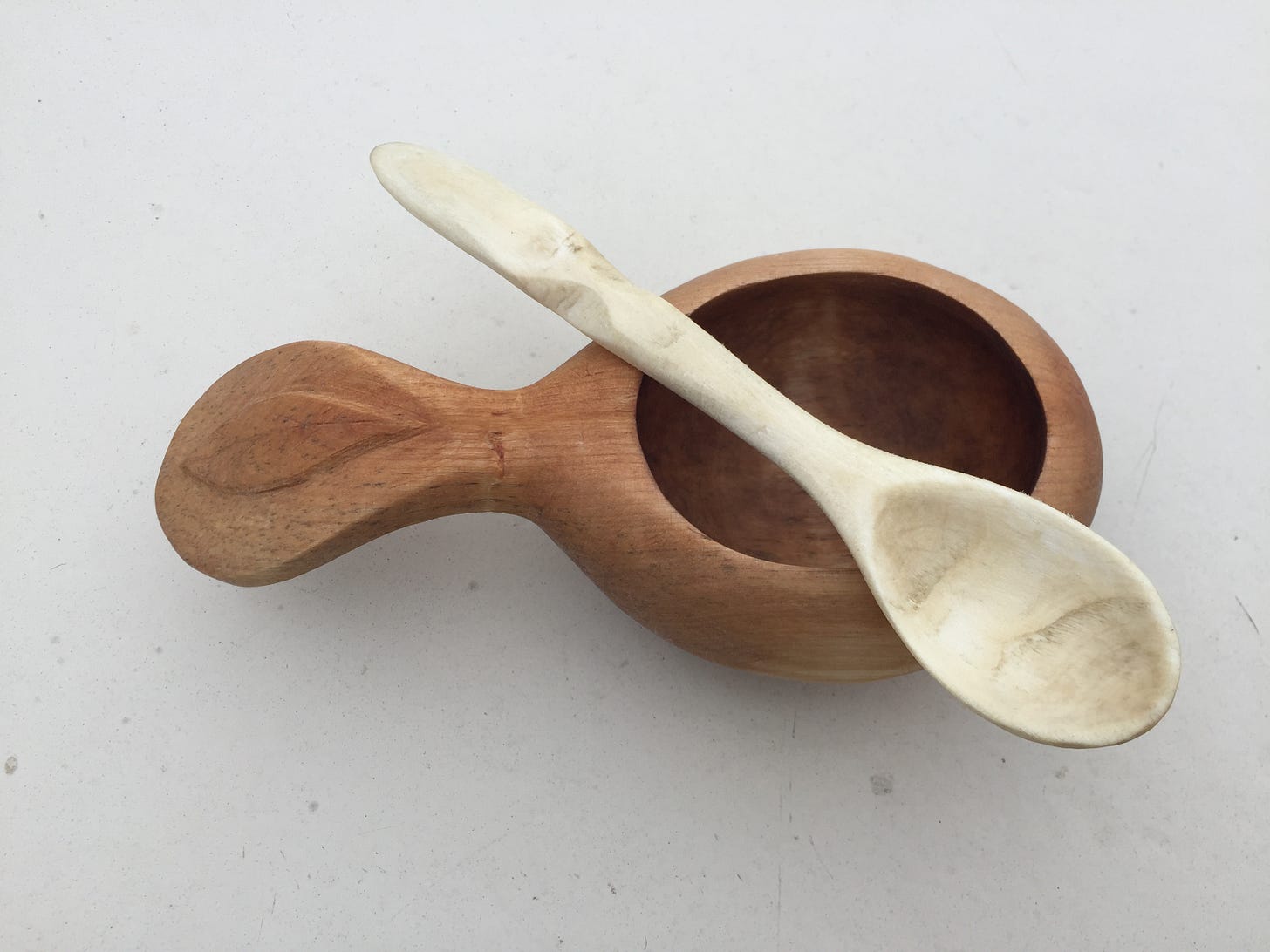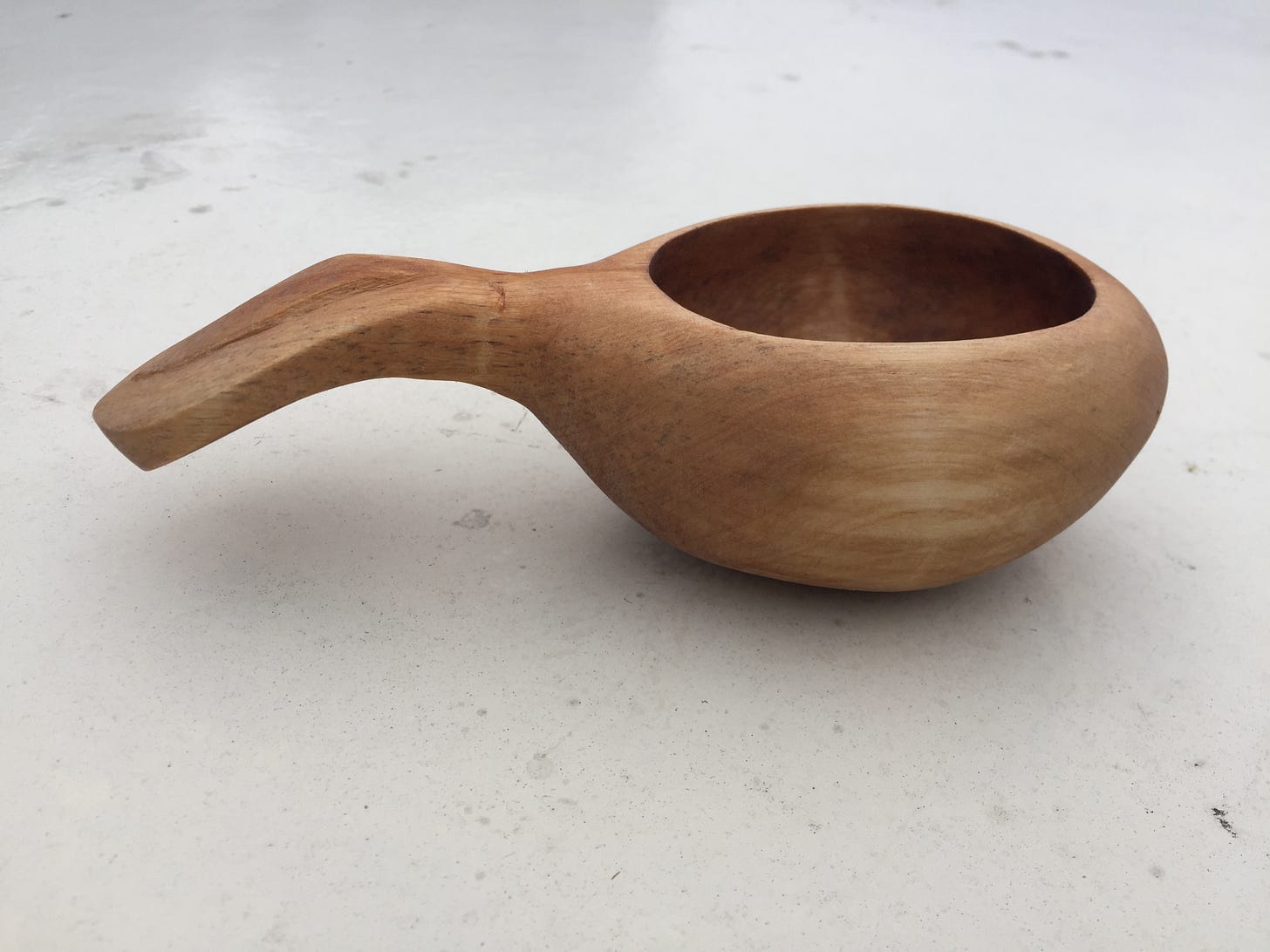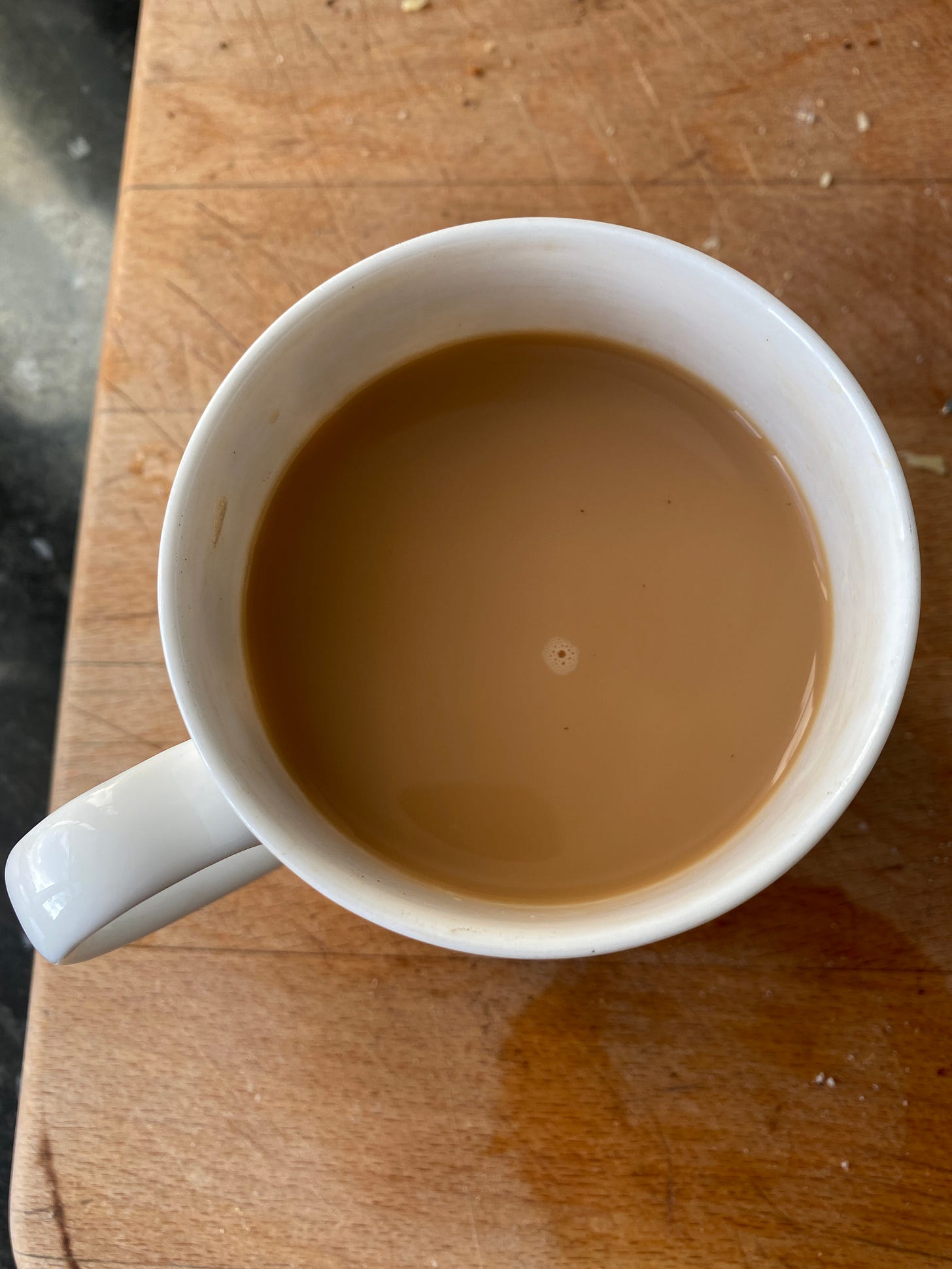I am on the train to Uppsala to hold a workshop offering tactile richness as an antidote to the haptic desert many of us inhabit. There will be listening hands, sticking, nettles and t-shirts turning into cordage, stories from the Way and jokes from Chuang-Tzu, most likely. Wish me luck.
I have spent a week in Sweden travelling with a friend to help her find a home here. Snow holed us up in a hotel and so we caned the wifi and ate much cheese and meatballs. Then we perused granite landscapes, sublime lakes and ramshackle cabins until we became familiar with their forms and an alternative way forward for my friend unveiled itself to me. Now I am alone amongst strangers for the first time in a while, headphones in, laptop open, just another blonde clad in sensible winter clothes, disguised as a Swede. Several essays are mid-writing here in the drafts folder, a place I like to hang out when I am alone. There’s one about being a villain, one about prayer, another about 30 years spent resisting initiation, which will be ready for you by my anniversary here on Substack, near the end of November. More of my plans for the year ahead next week.
This week I offer thoughts on how words can be written during wartime, (carefully, sincerely, mainly). I send warm greetings to those who read my dispatches, I appreciate all your emails and comments, thank you for joining me here. Also, many thanks again to the friends with whom I remain in many-years-long communion by email and other ways of connecting, in conversation with whom many of the thoughts I share here in my writing take shape, including this week’s. You all know who you are. I send you my love.
Philia is a wellspring of great joy which it is my honour to tend.
All photos this week of simple vessels I have carved from green wood, over the years. All are regularly used at home.
A Chalice
When our words respond to or refer to things in the real world, and not only to virtual objects of the simulacrum, to the glistening reflective organs of the machine, or the disembodied realm of electronic media, then even in these online spaces, our words can still be true. Words in this case are just really great tools, and in the right hands using the correct method, bring real benefit, even to the non-human sphere, if they encourage us to return to source. If you like, the words can be fingers pointing to the moon.
But when words are a finger pointing to the place where there used to be a finger pointing to the moon, or when the finger points to a flashing sign that says, ‘there is no moon’, well then, we do not have true words. We can no longer speak of communication, but only of propaganda.
Fellow word-wranglers, it seems to me our alchemical task is a big one, but one we are absolutely equipped to face. How to use words truly, so that even the land and creatures, the non-worded community, may benefit from how we write. It is in some ways a grail quest, so today I will write it like that.
Everyone is looking for ever more wonderful chalices and the gaudy cups that people think are fitting for the end of the way things have been for about 2000 years, are not. They are like a used Coke can for a blood transfusion. So, what if you take green wood that you grew yourself and must make fresh the cup that will hold the blood or the wine or the tears or the disappearing glacial melt water or the whole massive weight of your own heart-ocean and yet you only have one small curved gouge and an old Opinel to hand and it must be done before day's end - which is to say your life's end - and you have to involve others and you're not allowed the myth of the Great Hero (because this myth is what built the Machine, honestly.) And so what if ordinary 'we’ choose to sit and carve with our word-rasps and our thought-crook-knives that we have kept sharp and honed and not overused - (this is the true key - a mind that has not been dulled by over-thinking) and carve that perfect simple cup that can hold it all? Many will think it an amateur's kuksa some will assume we are playing a faux-humble game but we will actually be reclaiming the tools of language for loving surgery upon a frail earth [first do no harm] unlike those who flail about with their word knives [terrorising everyone] Writers write, singers sing, runners run, bakers bake; we write and there's nothing wrong with our path, even in times of war. All times have been times of war. Buddha was a prince and his 'housebuilder' analogy implied palaces: everyone always forgets his aristocratic class! We may be a man in a cottage growing a forest from scratch or a woman walking away from the devastation of her burning home, so we must grow our words from scratch too. Words are not the curse and they can tear down palaces as easily as build them just be rid of opinion that's the only thing needing to be escaped. Then use words freely, generously, as though you were passing the simple birchwood cup you carved among friends full of something good, sharp, yet honeyed. Because I assure you, we all really long for mead.
Words not traps
From an email to a friend, 2020.
Knowledge of 'The Tree of Knowledge of Good and Evil' is not 'language'. Language predates the story of The Fall, and only becomes equated with this story once fetishized as a thing in itself, rather than a way in which we may engage with the real. I too seek for a way to use words that is not controlling and commodifying that with which I seek to remain in communion. Luckily, the tools of the ancients are literally at our fingertips. 'True Lead', Taoist terminology for the real sense of things, is always available in the body, and can be trained and honed, made subtle and fine, the real master. ‘True Mercury’, an open mind un-blunted by addiction to discursive thought, is the assistant, the emissary. Most word-winders only want a tight thread, like that with which you make nets to string in the trees to trap migratory birds. They don't want to make soft, giving, yarn with which you can weave a shawl to wrap loved ones.
Language has become a plastic net, endlessly fishing itself out of a dead ocean and hurling itself on the blasted shores of its own detritus.
As Caliban said, 'The red plague rid thee for learning me your language!'
But also, somehow, Ariel, showing us all the treasures of the isle.
What are the words and ways of language with which I may speak and write, (in English, my mother tongue), that free the reader, not enslave her? That warm the listener, and do not place me above her? That allow for true communication? I have no answer today, so I will spend my evening outreaching again to the horizons, with every sense I can muster, and stand a while in the unknowing, as I do the washing up, overlooking the river.
This week’s good thing: This time I am travelling with my own supply of Yorkshire Tea. I took an extra box for Dougald and Anna, and have a box in the van for me and Theresa. Just that one small comfort makes being away from loved ones and home for a month totally doable. Add a large mug, some milk, and I’m ready for a day teaching or travelling. What a simple creature I am, these days. The golden elixir indeed.








Your words this morning
stanch the blood loss
from an encounter
with a man carrying a knife in his voice /
Returning to the inward hearth
wound bound, guazed,
I blink in the firelight
and subscribe to your newsletter
grateful
to leave some small token for the medic
who has visited and healed me
before stepping back into the night
My hands/gaze/heart-shield softened seeing your carvings. They’re really beautiful. Part of me suddenly believes I too could carve a small bowl one day, sanding it softly while whispering sounds of thanks into the wood. A vessel for sharing, for friendship and communion. Yes, this is something I’d love to learn and more so, give myself into.